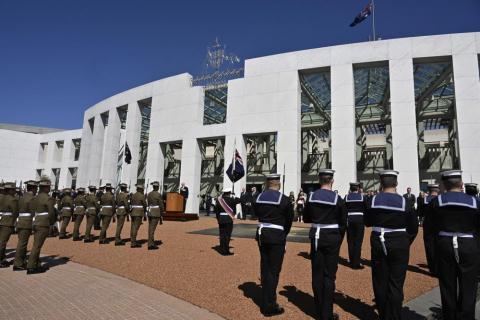Australian PM defends ban on Parliament due to royal’s death

Australia's prime minister on Monday defended an obscure and longstanding protocol that bars the nation's parliament from sitting for 15 days following a British monarch's death.
Lawmakers will reconvene on Sept. 23 to debate a condolence motion for Queen Elizabeth II, the earliest date that the protocol allows, Prime Minister Anthony Albanese said.
While presenting himself as a traditionalist, Albanese wants an Australian president to replace the British monarch as the nation's head of state. But he has brushed off questions about creating an Australian republic since the queen's death.
Most advocates for and against a republic are avoiding saying anything that might be seen as seeking advantage from the death of a widely respected monarch.
Britain apparently doesn't have a comparable protocol and King Charles III, monarch of both Britain and Australia, will address the British Parliament this week.
Because the last British monarch died in 1952, few knew of the Australian protocol. Only two kings had died between then and when Parliament first sat in 1901.
Asked who was behind the protocol, Albanese replied it had "been in place for a long period of time."
"There is something to be said for a prime minister who follows tradition, who follows protocols and who follows order," Albanese told reporters. "That is something that I have done to define my prime ministership - respect for those traditions."
Parliamentary debate in Australia often degenerates into heated and unedifying personal abuse, particularly during Question Time, when lawmakers interrogate ministers about issues of the day.
"The idea that we could be debating Question Time as usual, that we could be having the engagement as if it was...
- Log in to post comments



